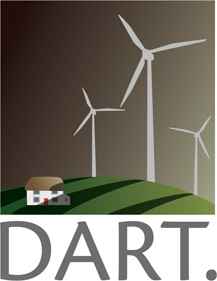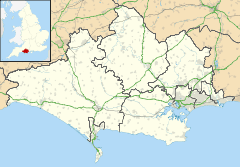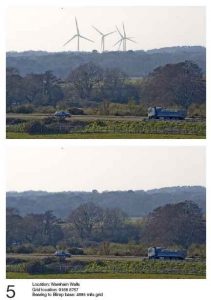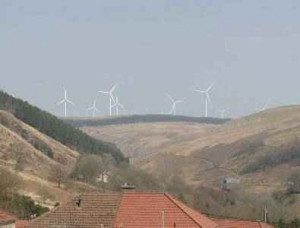A planning inspector has granted permission for a wind farm development of four onshore 125 metre wind turbines at Wareham, Dorset. This may not seem significant in the great scheme of wind power developments, but it shows that a Planning Inspector can and will consider the greater good when looking at an application for a wind farm, and not have hands tied by the local district council’s opposition. There was also a lot of opposition from the pressure group DART (Dorset Against Rural Turbines).
Their campaign included showing the relative size of the turbines as compared to the London Eye wheel at Waterloo, central London. Chalk and cheese.
This decision arises from Purbeck Wind Farm’s appeal against Purbeck District Council’s decision in 2011 to refuse permission for four turbines at Masters Pit, Puddletown Road, East Stoke, near Wareham in Dorset, South West England. The Appeal Hearing took place in Wareham in April 2012 and lasted three weeks. The Planning Inspector was nothing if not thorough and reviewed a wide range of information, including listening to the views of all interested parties. He also carried out site visits before making his decision.
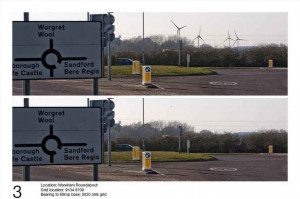
The factors taken into account in reaching his decision, included the effect of the proposed development on the visual amenity of the surrounding area, the effect on the living conditions of nearby occupiers in terms of visual dominance and noise and disturbance; and whether the environmental and economic benefits of the scheme would be sufficient to outweigh any harm that might be caused. These were and indeed should always be the vital elements in considering any proposed wind farm developments. It is gratifying to note that in this small corner of England, often renown for its resistance to change and tardiness in embracing new concepts, good sense has prevailed.
In the decision notice, the planning inspectorate outlined the benefits of the scheme. The main elements here were the supply of a significant amount of renewable energy and contribution to the achievement of the UK national target of 15% and the renewable energy target for Dorset of 7.5% of energy consumption from renewables by 2020. He noted that this was an important material consideration in its own right. He also recognised that this farm would make a contribution to mitigating climate change and to energy security in Dorset through contributing to a mix of renewable resources. He also noted that there would be some contribution to local employment in the area, where unemployment was particularly high.
Let’s hope that sensible decisions like this will be made throughout the UK when planning applications for wind farms come to be considered!

